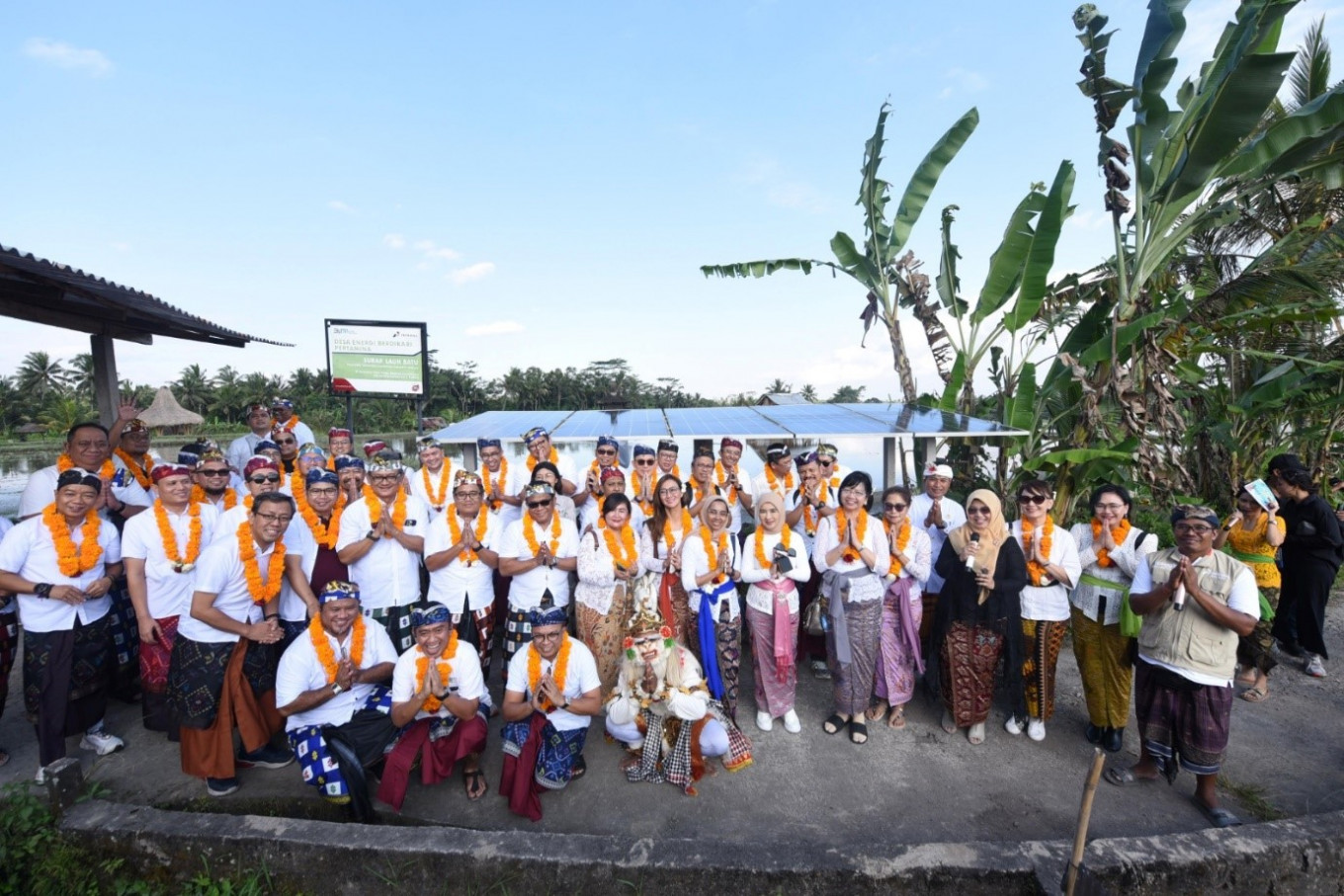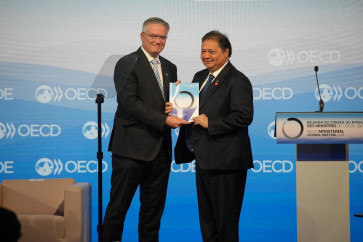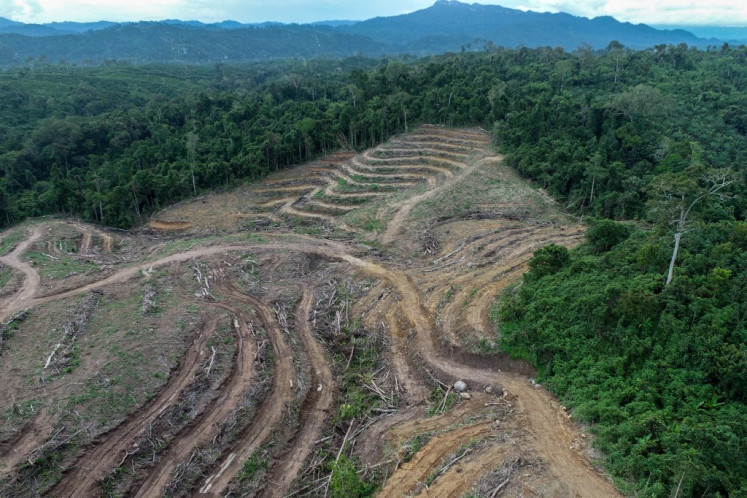Popular Reads
Top Results
Can't find what you're looking for?
View all search resultsPopular Reads
Top Results
Can't find what you're looking for?
View all search resultsPertamina president director invites media editors-in-chief to visit Keliki village
Change text size
Gift Premium Articles
to Anyone
P
T Pertamina is determined to continue driving the Village Energy Independence (DEB) program to accelerate the transition to clean energy and support the net-zero emissions (NZE) by 2060 target. This commitment was demonstrated by inviting 33 editors-in-chief of various mass media outlets to directly observe the DEB program, particularly the operation in Keliki village, Ubud, located in Gianyar regency, Bali, on June 21.
Nicke Widyawati, Pertamina president director, along with editors-in-chief of national mass media, directly inspected the use of clean energy generated by solar photovoltaics (PV) to supply energy for Subak Lauh Batu. Together with the management of Pertamina's holding and subholding companies, they also distributed organic fertilizer. Subsequently, the editors-in-chief were invited to directly observe the waste-processing site based on renewable energy and meet Pertamina's fostered micro, medium and small enterprises (MSMEs).
Keliki village has become a globally recognized pilot project for village-based clean energy development. Keliki has been visited by world delegations such as the G20 countries participating in the 2022 G20 Energy Transition Working Group (ETWG), the 2023 ASEAN Energy Ministerial Meeting, as well as by the United States deputy secretary of energy in 2023 and the Southeast Asia Youth Energy Forum (SAYEF).
Clean energy in Keliki, which is used to operate irrigation systems for rice fields, waste processing, lighting and more, has successfully improved the local economy by increasing food production, particularly of rice. The land managed by the community, due to the subak system using irrigation from upstream to downstream, faces challenges in water supply during the dry season.
Furthermore, through clean energy for waste management at TPS3R, up to 3-4 tonnes of waste per week can be processed into compost for local agriculture.
The positive environmental impact of the DEB Keliki program contributes to a reduction in emissions of 36,750 kilograms of CO2eq per year.
Pertamina CSR & SMEPP VP Fajriyah Usman stated that DEB Keliki is one of Pertamina's social and environmental responsibility (CSER) programs to support its role in leading the energy transition and achieving the NZE target by 2060.
"Pertamina, together with the community and local heroes, built seven solar-powered water pumps for irrigation," said Fajriyah.
In its management, Fajriyah added, Pertamina has entrusted the village-owned enterprise (BUMDes) of Keliki village. Up to now, renewable energy in Keliki has benefited 1,200 households.
Furthermore, Fajriyah added that to ensure the program's sustainability and achieve economic and energy self-sufficiency, digital marketing business activities have become a focus, involving 25 young people and generating 15 MSMEs through cooperation among village youth, ranging from packaging products to compost fertilizer.
The program continues to be developed to have a greater impact through education for early childhood, kindergarten and elementary schoolchildren around Keliki, regarding the impact of waste on the ecosystem, waste processing and the utilization of clean energy.
Chairman of BUMDes Yowana Bakti Keliki I Wayan Sumada expressed his appreciation to Pertamina for transforming Keliki into an energy-independent village.
"Pertamina has become ingrained into Keliki village. In the fields, there is Pertamina, in schools, there is Pertamina, in waste processing, there is Pertamina. So, Pertamina is everywhere," said I Wayan Sumada.
Since the installation of solar-powered water pumps and compost fertilizer from waste processing for the fields, the yield of organic rice in Keliki village has increased from 5 tonnes to 8 tonnes per hectare per harvest, or above the average of typical fields, which is 7 tonnes per hectare, added Sumada.










